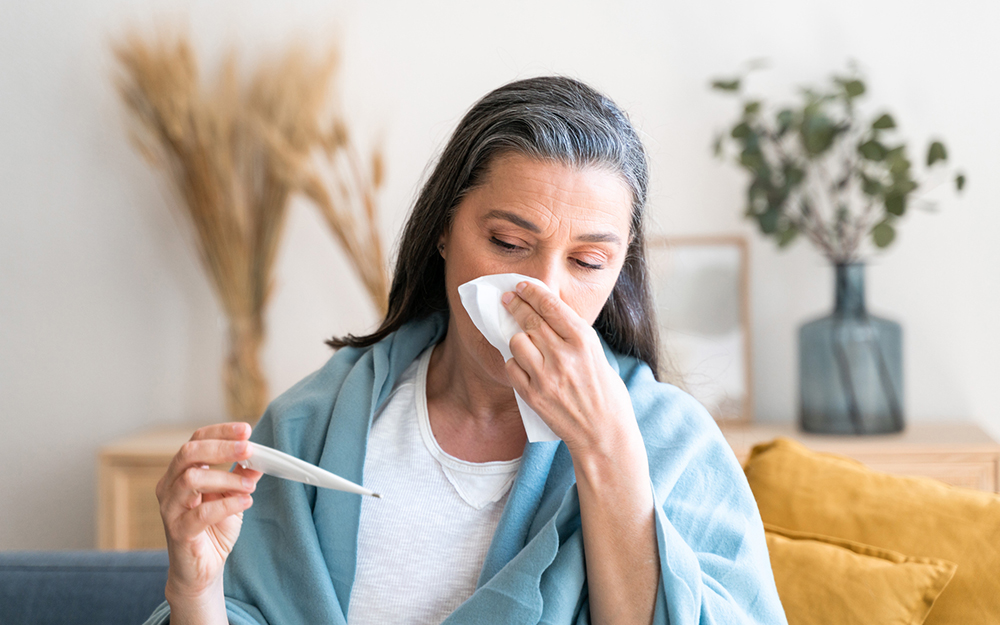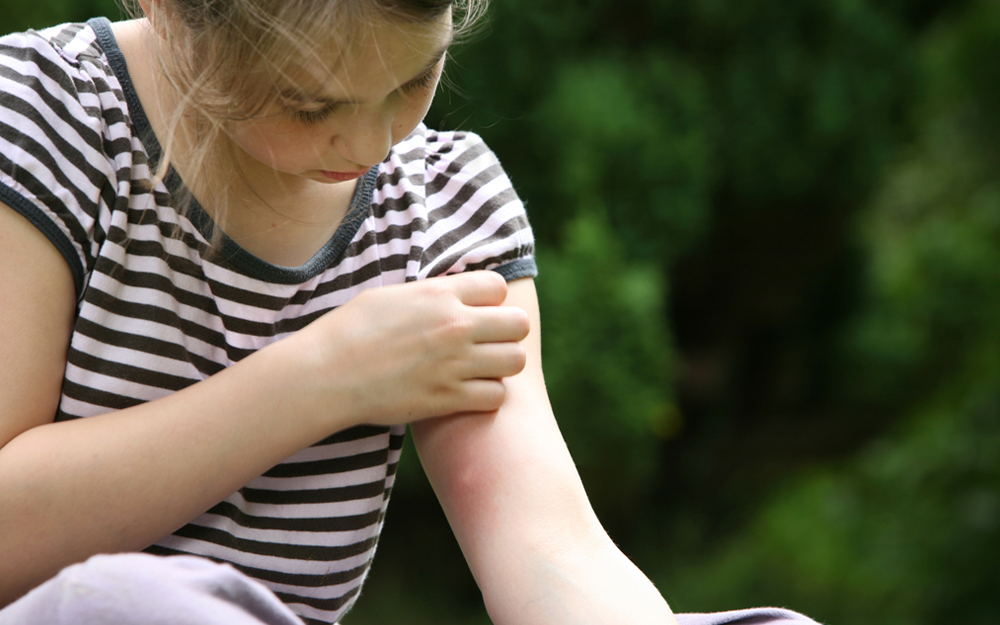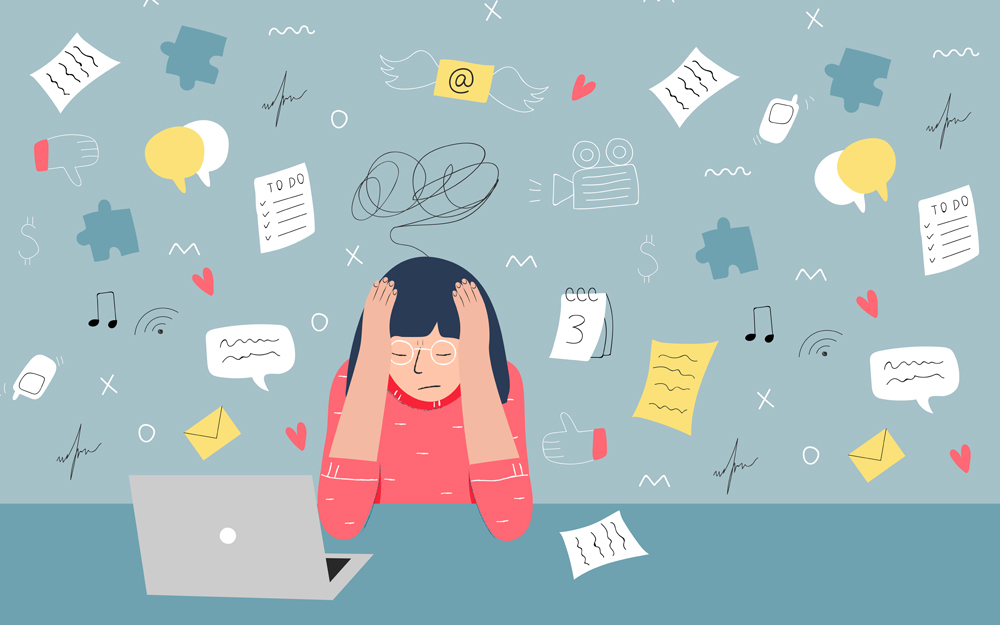Flu and RSV: How to Protect Yourself Now
Date
February 5, 2024
Credits

Date
February 5, 2024
Credits
Medical providers featured in this article

In Brief
{{cta-block}}
While COVID-19 is still on everyone’s minds, it can be easy to forget about other illnesses that spike in the winter, such as the flu and RSV (respiratory syncytial virus).
Cedars-Sinai’s primary care and urgent care clinics see a steady rise in respiratory viruses every fall and winter, according to Caroline Goldzweig, MD, chief medical officer of the Cedars-Sinai Medical Network. The trend extends statewide—but the good news is that you can reduce your risk of catching the flu or RSV, and there are ways to keep the symptoms under control if you do get sick.
{{providers}}
“The flu season is still in full force, so if you’re eligible for the flu vaccine but haven’t gotten it yet, please do so."
A Multipronged Approach to Flu
When it comes to the flu, you already know it’s important to get vaccinated. But did you know it’s not too late for this season?
“Some patients think that if they haven’t gotten the flu shot by now, there is no point in doing so—but that’s not true,” said Michael Ben-Aderet, MD, associate director of Hospital Epidemiology. “The flu season is still in full force, so if you’re eligible for the flu vaccine but haven’t gotten it yet, please do so.”
Vaccination doesn’t guarantee you won’t get the flu, but it can make your symptoms less severe if you do get sick. More good news: The flu vaccine is not the only tool at your disposal. If you do catch the flu, the antiviral drug Tamiflu can help, as long as you start taking it within 72 hours after you’ve been diagnosed.
Tamiflu, in specific circumstances, can be used to prevent flu infection if you have been exposed. It can sometimes stop the flu virus from growing, shorten your recovery time by one to two days or can reduce symptoms such as fever, sore throat, cough, aches and chills. Over-the-counter drugs such as aspirin can also lessen pain and fever.
“While not a substitute for vaccination, Tamiflu is an important medication for people with risk factors for severe disease who are sick with influenza or have been exposed. You can also use over-the-counter meds for relief of fever or pain. Ultimately, vaccination combined with treatment if you get sick is the best bet for keeping you healthy and feeling like yourself,” said Ben-Aderet.
Should You Get the RSV Vaccine?
When the flu, COVID-19 and RSV are all circulating at the same time, experts warn of a “tripledemic.” Patients can test positive for two or even all three of these viruses at once.
“Having one of these illnesses doesn’t protect you from the others,” said Goldzweig. “But people aren’t necessarily hearing much about the RSV vaccine and why it’s important.”
RSV, which typically causes cold-like symptoms, often goes away on its own within a week or two. But for infants and some adults, it can be much more serious and result in hospitalization.
The first RSV vaccine for adults, which was approved by the FDA last year, is effective at preventing severe cases of illness. The vaccine is recommended for people age 60 or older after shared decision-making with their doctor, with adults who have chronic conditions or are immuno-compromised at higher risk.
RSV is also dangerous for young infants. Expectant mothers between 32 and 36 weeks pregnant are eligible for the shot because the antibodies they develop in utero can protect newborns during the earliest and most vulnerable months of life. This is especially important because new RSV immunizations for infants are in short supply.
The bottom line? Talk to your healthcare provider to see if the RSV vaccine is right for you.
Get Expert Input Without the Wait
If you feel sick, a virtual appointment can be a convenient first step. Adult patients in California can use Cedars-Sinai Connect, a mobile app that provides quick, 24/7 access to Cedars-Sinai experts for urgent issues. Same-day primary care appointments also are available on the platform. During a virtual visit, providers can help you think through your options and advise you on getting tested.
“Because RSV, the flu and COVID-19 cause similar symptoms, you can’t guess what you have,” said Ben-Aderet. “It’s important to get tested if you are sick and need treatment because that’s the only way to know which treatment you need.”






